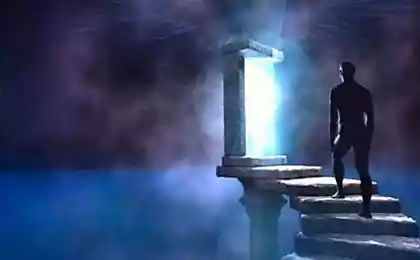678
The great confinement. Of madness in the classical age, and in the lives of Michel Foucault
If in the middle of the twentieth century, the dominant intellectual influence of France was the existentialist Jean-Paul Sartre, in the postwar years was replaced Michel Foucault was a philosopher and historian, had avoided any shortcuts. His first major work devoted not to being, of subject and other traditional philosophical problems, and insanity.
As a "History of madness in the classical age" connected with the relation to madness itself, Foucault.
Madness By Michel Foucault
Eighty two million twenty two thousand four hundred eighty five
In July 1978, Michel Foucault — perhaps the most influential public intellectual of France at that time — emerged from his apartment on the street Vaugirard in Paris; he was under the influence of opium and was hit by a car. Flown away in the direction of the philosopher thought that time stopped, and he leaves his body. The thinker survived and told of the accident as semi-mystical, euphoric experience.
"Pleasure, which I call real, got to be so deep, so intense, so all-consuming that I won't be able to bear it. I'm going to die. Give you a clear and simple example. Once I was hit by a car. I crossed the street. And somewhere about two seconds I thought I was dying. It was very, very intense pleasure. Been wonderful weather. It was seven o'clock, summer. The sun was setting. The sky was beautiful, blue and so on. It was — and still remains — one of my best memories", — he explained to the interviewer in 1982.
You have to be crazy enough to consider an accident and a feeling of impending death most intense pleasure in life. But the author of "the history of madness in the classical age" wasn't crazy — at least in the medical sense.
And yet Foucault was involved in the madness as the object of study: to write the history of madness, he needed to be crazy in its own way. In an interview of 1981, his first biographer, Didier Eribon philosopher dropped a remark that sheds light on his legacy: "Every time I tried to do this or that theoretical work, the sources were the elements of my own experience."
That's why he disliked the book, which became his first bestseller and made the author outside of academic circles, "Words and things", released in 1966. Newspapers wrote that a revolution in philosophy: a book defiantly put on the tables of a cafe and read almost on the beach. But for Foucault it is only "marginal", "technical book", describing "not the problems that I was most worried about" devoid of "passion, led me when writing other works."
"I have already talked about border experiences: this topic has me really takes. Madness, death, sexuality, crime are for me very important thing. But "Words and things" seem to me to be something of a formal exercise," says Foucault in the interview Duco, Trombadori.
In an interview, "Truth, power and self" he explicitly says: "Each of my works is a part of my biography", the biography of the same Foucault is a desire for borderline experiences, which biographer James Miller in "the Passion of Michel Foucault" called transgressive "experience-limit": "Through the intoxication, dreams, oblivion of the Dionysian artist, the most painful ascetic practices and unbridled knowledge of sadomasochistic eroticism, it seemed possible to overcome, however briefly, the boundaries separating the conscious and subconscious, reason and folly, pleasure and pain."
Forty three million three hundred thirty four thousand one hundred seventy two
"Pinel outside the salpêtrière", 1876 Tony Robert-Fleury.
In 1656 in France, a Royal edict created the so-called General hospital, in whose jurisdiction includes the Salpetriere, a former Arsenal (FR. salpêtre — nitrate). According to the edict, a new type of institutions, in possession of the "iron collars and underground dungeons", is intended to eliminate the "begging and idleness, the source of all disorder". But in practice, they conclude not only poor, but vagrants, blasphemers, drunkards, Libertines, mad and other "enemies of order". According to the census of 1690 outside the salpêtrière listed more than 3,000 people. In 1793 one of the founders of psychiatry Philippe Pinel frees the insane from the chains — but, says Foucault, to believe that madmen have been delivered from the status of criminals — prejudice: "it liberated them were only crippled, old people, idlers, prostitutes, and crazy he has left in their respective institutions»
Experience the limit can be embodied in any field — sex, madness, politics — where the subject can reach such a critical point in which his subjectivity will be transformed into something radically different. The Nietzschean possibility (and necessity) to find, to change and overcome yourself is one of the fundamental in the world of Foucault. The best epitaph for him would be a string of "Zarathustra": "My Self only comes back to me, it finally comes home, back and all parts of it, the former long abroad, and scattered among all things and accidents."
It is in the plane of experience is the limit, transforming identity, lies Foucault-epicurean, hit by a car and the euphoric dreams of watching the setting sun. There Foucault was a theorist who applied to the ancient impact of technology on themselves, at the heart of which Socrates's mandate "to care first and most strongly about body and not about money, but about the soul".
In the same vein, the rapture Foucault, an activist of the student protests of 1968: "They don't make revolution — it is revolution." This sympathy for Red may is also not a Marxist, and Nietzschean roots, may ' 68 is one example of "destruction of who we are, and create something entirely new — an absolute innovation." Innovation Itself returns to Foucault-homosexual — "We need to create a gay lifestyle. Gay establishment" — and Foucault-sadomasochist believe that sadomasochism is "a kind of creativity" and "the real creation of new possibilities of pleasure that people couldn't see before".
Madness — one ultimate experience among many, the experience edge. In an interview with the Italian newspaper La Fiera - Foucault argued that certain drugs allow you to achieve a state of unreason," in which the experience of madness is on the other side of the distinction between normality and pathology".
He is a philosopher, and indulged in may 1975 in the Valley of Death. Night, the iconic Zabriskie point, sounds magazine "Contact" avant-garde composer Stockhausen Kalnica, Foucault sits on the edge of the cliff under the influence of marijuana and LSD. Steregushiy hallucinogens, the thinker wanted to take baldoz, but American comrades persuaded him. Two hours later, he pointed to the stars and said "the Sky has exploded and the stars are falling on me like rain. I know that's not true, but it's the Truth."
That night to the accompaniment of electronic howls Stockhausen was born a lot of truths. According to those who accompanied the philosopher, at some point, Foucault began to cry and confessed that they were "very happy" and "gained a new vision of themselves." Subsequently, he repeatedly in conversations with friends mentioned about his acid trips as an important experience — apparently just as important as hitting the car on the street Vaugirard.
Insane in the hospital of St. Anna
Foucault opposes the "History of madness in the classical age" "Words and things", as the first to a much greater extent, it reflects the "direct personal experience": "I had a personal, complex relationship to madness and psychiatric institutions". To the assertions of Foucault that all his work is autobiographical, it would be possible to treat with skepticism, if they are not confirmed and such close friends as the philosopher Gilles Deleuze, and even classmates of the philosopher. Didier Eribon in the biography quotes the remarks of students, who studied with Foucault at the école Normal in the 40's: "he's on life-looked into the eyes of madness", "when "History of madness" was published, all who knew him, I realized that this book is closely linked to his own biography."
Reason to consider themselves mentally ill the philosopher gave often: once found him in the audience lying on the floor with the chest cut with a razor; another time Foucault was threatened with a knife to the student; and the question of where he was going, replied sharply, "Go to the store to buy the rope I need to hang myself". Often exacerbation happened after late-night visits to bars for gays in the homosexuality in France were still stigmatized, and the life of a pariah will inevitably lead to trauma.
In 1948, the 22-year-old Foucault was really trying to commit suicide, after which the father sent the son to the psychiatrist in the hospital of St. Anne, — so he became acquainted with the Institute, supervising crazy. He is not only as a patient but as a student at the time of induction of psychopathology, which included lectures, demonstration of patients the explanations of the doctors and familiarization with the hospital area.
Foucault decides to obtain a degree of licentiate, not only in philosophy but also of psychology, and even speculates about the doctor's career.
In 1952, he defends the diploma of psychopathology and arranged in the hospital of St. Anne for the post of trainee — he had no salary, responsibilities unclear.
Later, the philosopher recalled that "was in the overall hierarchy between patients and physicians that were not associated with personal characteristics or with a particular attitude to me, but is a consequence of the ambiguity of my status, forcing me to distance themselves from the doctors. I am sure that it was not about merit, because remember that at that time, always felt not at ease. And only a few years old when I started working on a book on the history of psychiatry, experienced me experience embarrassment took the form of historical criticism."
Eighty million five hundred forty five thousand three hundred ninety three
Ship of fools (Stultifera Navis) is depicted on the title page of the manuscript of the same poem by Sebastian Brant, written in 1494.
The author of the engraving is unknown, presumably Albrecht Durer.
Stultifera Navis — one of the most common images of the Renaissance in painting and literature; the most famous image of the Ship belongs to Hieronymus Bosch.
As Foucault writes, in the Renaissance, "the fashion is the essay "Ships", whose crew of imaginary heroes, and of personified virtues and vices or of social types, goes to great symbolic voyage; it brings the characters if not prosperity, then at least meet his fate with either the truth about himself»
In another psychiatric clinic, Foucault observes the carnival before lent: patients preparing costumes and masks, celebrated with masked faces of doctors, and in the evening burned the mask with the Scarecrow carnival. Foucault then said: "This celebration of madmen like the feast of the dead", — it is noteworthy that in the first chapters of the "History of madness" it is a lot of space pays respect madness and death.
In those years Foucault was working as an assistant in the laboratory of electroencephalography in prison, where she's diagnosed with traumatic brain injury and neurological problems.
Thus, says Eribon, at the beginning of an academic career, he met with two worlds, subject isolation: "madness" and "offence". Both of these topics will arise in his doctoral thesis, which will be released under the title "History of madness". No less important for books will be another place of work — the French cultural center in Uppsala, where Foucault finds a job in 1955. In the Uppsala library, he discovers a giant private collection of a physician, which included a bibliographic rarity, letters, manuscripts, magical books, works on the history of medicine and охватывающуюXVI—XX centuries ESA. Day after day, and Foucault before and after work methodically explores the archive; the manuscript of the thesis, over time, will swell to thousands of pages — and despite the unconventional style of presentation, may 20, 1961 will be protected at the Sorbonne.
Scientific supervisor Foucault is a philosopher and specialist on the history of science Georges Kangeyam — initially reacted critically to the idea that psychiatry has monopolized the phenomenon of madness, and she turned it into a mental illness, but ultimately in its opinion recognized the outstanding philosophical dignity of the manuscript: "the Value of this work obvious. As Mr. Foucault never produces in mind the variety of experiences of madness that took place from the Renaissance to the present day, available to modern man reflected in the mirror of plastic arts, literature, and philosophy; as he unravels the tangle core spun, his thesis is both analysis and synthesis, the severity of which is not easy reading, but kompensiruet idea."
Madness in the classical age
So what is madness for Foucault? The story of what he wrote? It is logical to assume that if a historian writes a history of a certain subject, he will first give its definition. But Foucault throughout the book does not give clear and only one definition of madness. As noted by Maurice Blanchot, "Foucault talked about the madness only indirectly, in the first place it took the spell to the exclusion, which was one fine (or not) the day floated by simple administrative decree."
Such default, or, conversely, too broad an understanding of madness — led to the attribution to Foucault the idea that madness does not exist. But it's in the "History of madness" is exactly about the opposite: how was madness presented in different epochs? in what institutional forms it was expressed? as with the changing historical forms of the changed attitude in society? as the madness became what it is for us today — mental illness, subject to specialized treatment? as appeared reasonable man, who is to judge the insane?
Madness as a biological illness is a relatively recent invention.In the middle Ages and the Renaissance, madmen were much more integrated into society than in modern times. As Foucault summarizes in a lecture of 1970, "the lunatics were allowed to exist in the bosom of society. The man called the village idiot, not married, did not participate in the merrymaking, but the rest of his fed and kept. He wandered from village to village, sometimes joined the army, became a traveling salesman". If crazy started to brawl, it settled over the town, sometimes given to the care of the sailors to rid the town of crazy; perhaps it is from Hieronymus Bosch took the story to the famous "Ship of fools".
This occurs on the first pages of the image — "fool for your stupid Shuttle is sent to another world and from another world arrives, leaving the shore" — has become one of the key to the whole book. Analyzing the paintings of Bosch, Bruegel and Durer, works of Montaigne, Cervantes and Shakespeare, Foucault concludes that once the experience of madness was an experience of transcendent, otherworldly power, both pushing and frightening, tragic and magic; madness not as a human failing, but as fantastic a revelation about the dark depths of human nature, as the truth about hell engulfed in the madness of the world.
Over time, however, something went wrong — what happened, what Foucault called the "Great confinement". Madness had brought with him the terrible of the podium, neutralized and isolated as in imagination, and in society. Montaigne almost with admiration wrote about the mad poet Torquato tasso: "Who does not know how closely madness is in contact with the high impulses of the free spirit and the manifestations of the extraordinary and incomparable virtue?"And in the next century, Descartes in "Meditations" has already dissociated itself from the madness: thinking "I am" has nothing to do with it, because madness itself cannot be thought an act — so begins the era of the great rational philosophy, where madness is devoid of voice.
Imprisonment in thought corresponds to a social limbo: during the life of Descartes in Europe are starting to open hospitals and hospices, has a "pillars, iron collars, chambers and underground dungeons"; often they occupy premises of the former leper colony, which the hotel will inherit the stigmata of the rogue. According to the Royal edict, these institutions are designed to discourage "begging and idleness as the source of all disorders", in fact — there are not only the poor, but lame, the old, the sick, loafers, prostitutes, fornicators, blasphemers.
In the middle of XVII century in the same Paris already concluded six thousand people — 1% of the population of the city. In the nascent industrial society the existence of those who are not able to work or wrong thinking, became less and less tolerant. Ship of fools, which was visible sacral nightmares foolishness and spasms of the universe, has ceased to surf the chaotic water and turned into a prison and subsequently in a psychiatric hospital.
Ancient, space madness ceased, but it hasn't been pushed out completely, and just sleep — "it is awakened to life by the last words of Nietzsche, the last visions of van Gogh". Artists such as Artaud or Nerval, still able to Express the experience of madness, in spite of his rejection by society.
It is in this task of "History of madness" — to give voice to the fact that for centuries by a variety of social practices, political institutions, ethical assessments, medical diagnoses forced to be silent: "would do well to listen, to bow to the murmur of the world, to try to see as many images that have never become poetry, so many phantasms that have never reached the colours of wakefulness."
Sixty million eight hundred seventy five thousand three hundred twenty four
How consistent was Foucault in the aestheticization of madness, evidenced by the debate on Nietzsche conference, 1964:
«Question: By the way, about madness. You said, the experience of madness is the point of greatest approximation to absolute knowledge... You really think so?
Foucault: Yeah.
Question :Not if You had in mind rather "consciousness" or "threshold," or the feeling of madness? Do You believe that you can have... that such great minds like Nietzsche, had "experience of madness"?
Foucault :Just so.»
It is also interesting to Visit the paintings by van Gogh
9 thoughts that avoid psychologically hardy people
"History of madness" ends with the thesis that "folly in the modern world, after the Garden and Goya, belongs to the crucial aspects of any creative work, — in other words, those deadly, powerful elements that are inherent in the work itself".
Of course, the book raises many of the problems associated with normativity and pathology, technology, power, medical knowledge, communication power and knowledge, the formation of a new subjectivity — all of them will move in later work Foucault.
But among other things, "History of madness" was intended to once again fill with wind the sails of the Ship of fools, so he continued his mysterious journey to the limits of the mind.published
Author: Stas Naranovich
P. S. And remember, just changing your mind — together we change the world! ©
Source: gorky.media/context/velikoe-zatochenie/
As a "History of madness in the classical age" connected with the relation to madness itself, Foucault.
Madness By Michel Foucault
Eighty two million twenty two thousand four hundred eighty five
In July 1978, Michel Foucault — perhaps the most influential public intellectual of France at that time — emerged from his apartment on the street Vaugirard in Paris; he was under the influence of opium and was hit by a car. Flown away in the direction of the philosopher thought that time stopped, and he leaves his body. The thinker survived and told of the accident as semi-mystical, euphoric experience.
"Pleasure, which I call real, got to be so deep, so intense, so all-consuming that I won't be able to bear it. I'm going to die. Give you a clear and simple example. Once I was hit by a car. I crossed the street. And somewhere about two seconds I thought I was dying. It was very, very intense pleasure. Been wonderful weather. It was seven o'clock, summer. The sun was setting. The sky was beautiful, blue and so on. It was — and still remains — one of my best memories", — he explained to the interviewer in 1982.
You have to be crazy enough to consider an accident and a feeling of impending death most intense pleasure in life. But the author of "the history of madness in the classical age" wasn't crazy — at least in the medical sense.
And yet Foucault was involved in the madness as the object of study: to write the history of madness, he needed to be crazy in its own way. In an interview of 1981, his first biographer, Didier Eribon philosopher dropped a remark that sheds light on his legacy: "Every time I tried to do this or that theoretical work, the sources were the elements of my own experience."
That's why he disliked the book, which became his first bestseller and made the author outside of academic circles, "Words and things", released in 1966. Newspapers wrote that a revolution in philosophy: a book defiantly put on the tables of a cafe and read almost on the beach. But for Foucault it is only "marginal", "technical book", describing "not the problems that I was most worried about" devoid of "passion, led me when writing other works."
"I have already talked about border experiences: this topic has me really takes. Madness, death, sexuality, crime are for me very important thing. But "Words and things" seem to me to be something of a formal exercise," says Foucault in the interview Duco, Trombadori.
In an interview, "Truth, power and self" he explicitly says: "Each of my works is a part of my biography", the biography of the same Foucault is a desire for borderline experiences, which biographer James Miller in "the Passion of Michel Foucault" called transgressive "experience-limit": "Through the intoxication, dreams, oblivion of the Dionysian artist, the most painful ascetic practices and unbridled knowledge of sadomasochistic eroticism, it seemed possible to overcome, however briefly, the boundaries separating the conscious and subconscious, reason and folly, pleasure and pain."
Forty three million three hundred thirty four thousand one hundred seventy two
"Pinel outside the salpêtrière", 1876 Tony Robert-Fleury.
In 1656 in France, a Royal edict created the so-called General hospital, in whose jurisdiction includes the Salpetriere, a former Arsenal (FR. salpêtre — nitrate). According to the edict, a new type of institutions, in possession of the "iron collars and underground dungeons", is intended to eliminate the "begging and idleness, the source of all disorder". But in practice, they conclude not only poor, but vagrants, blasphemers, drunkards, Libertines, mad and other "enemies of order". According to the census of 1690 outside the salpêtrière listed more than 3,000 people. In 1793 one of the founders of psychiatry Philippe Pinel frees the insane from the chains — but, says Foucault, to believe that madmen have been delivered from the status of criminals — prejudice: "it liberated them were only crippled, old people, idlers, prostitutes, and crazy he has left in their respective institutions»
Experience the limit can be embodied in any field — sex, madness, politics — where the subject can reach such a critical point in which his subjectivity will be transformed into something radically different. The Nietzschean possibility (and necessity) to find, to change and overcome yourself is one of the fundamental in the world of Foucault. The best epitaph for him would be a string of "Zarathustra": "My Self only comes back to me, it finally comes home, back and all parts of it, the former long abroad, and scattered among all things and accidents."
It is in the plane of experience is the limit, transforming identity, lies Foucault-epicurean, hit by a car and the euphoric dreams of watching the setting sun. There Foucault was a theorist who applied to the ancient impact of technology on themselves, at the heart of which Socrates's mandate "to care first and most strongly about body and not about money, but about the soul".
In the same vein, the rapture Foucault, an activist of the student protests of 1968: "They don't make revolution — it is revolution." This sympathy for Red may is also not a Marxist, and Nietzschean roots, may ' 68 is one example of "destruction of who we are, and create something entirely new — an absolute innovation." Innovation Itself returns to Foucault-homosexual — "We need to create a gay lifestyle. Gay establishment" — and Foucault-sadomasochist believe that sadomasochism is "a kind of creativity" and "the real creation of new possibilities of pleasure that people couldn't see before".
Madness — one ultimate experience among many, the experience edge. In an interview with the Italian newspaper La Fiera - Foucault argued that certain drugs allow you to achieve a state of unreason," in which the experience of madness is on the other side of the distinction between normality and pathology".
He is a philosopher, and indulged in may 1975 in the Valley of Death. Night, the iconic Zabriskie point, sounds magazine "Contact" avant-garde composer Stockhausen Kalnica, Foucault sits on the edge of the cliff under the influence of marijuana and LSD. Steregushiy hallucinogens, the thinker wanted to take baldoz, but American comrades persuaded him. Two hours later, he pointed to the stars and said "the Sky has exploded and the stars are falling on me like rain. I know that's not true, but it's the Truth."
That night to the accompaniment of electronic howls Stockhausen was born a lot of truths. According to those who accompanied the philosopher, at some point, Foucault began to cry and confessed that they were "very happy" and "gained a new vision of themselves." Subsequently, he repeatedly in conversations with friends mentioned about his acid trips as an important experience — apparently just as important as hitting the car on the street Vaugirard.
Insane in the hospital of St. Anna
Foucault opposes the "History of madness in the classical age" "Words and things", as the first to a much greater extent, it reflects the "direct personal experience": "I had a personal, complex relationship to madness and psychiatric institutions". To the assertions of Foucault that all his work is autobiographical, it would be possible to treat with skepticism, if they are not confirmed and such close friends as the philosopher Gilles Deleuze, and even classmates of the philosopher. Didier Eribon in the biography quotes the remarks of students, who studied with Foucault at the école Normal in the 40's: "he's on life-looked into the eyes of madness", "when "History of madness" was published, all who knew him, I realized that this book is closely linked to his own biography."
Reason to consider themselves mentally ill the philosopher gave often: once found him in the audience lying on the floor with the chest cut with a razor; another time Foucault was threatened with a knife to the student; and the question of where he was going, replied sharply, "Go to the store to buy the rope I need to hang myself". Often exacerbation happened after late-night visits to bars for gays in the homosexuality in France were still stigmatized, and the life of a pariah will inevitably lead to trauma.
In 1948, the 22-year-old Foucault was really trying to commit suicide, after which the father sent the son to the psychiatrist in the hospital of St. Anne, — so he became acquainted with the Institute, supervising crazy. He is not only as a patient but as a student at the time of induction of psychopathology, which included lectures, demonstration of patients the explanations of the doctors and familiarization with the hospital area.
Foucault decides to obtain a degree of licentiate, not only in philosophy but also of psychology, and even speculates about the doctor's career.
In 1952, he defends the diploma of psychopathology and arranged in the hospital of St. Anne for the post of trainee — he had no salary, responsibilities unclear.
Later, the philosopher recalled that "was in the overall hierarchy between patients and physicians that were not associated with personal characteristics or with a particular attitude to me, but is a consequence of the ambiguity of my status, forcing me to distance themselves from the doctors. I am sure that it was not about merit, because remember that at that time, always felt not at ease. And only a few years old when I started working on a book on the history of psychiatry, experienced me experience embarrassment took the form of historical criticism."
Eighty million five hundred forty five thousand three hundred ninety three
Ship of fools (Stultifera Navis) is depicted on the title page of the manuscript of the same poem by Sebastian Brant, written in 1494.
The author of the engraving is unknown, presumably Albrecht Durer.
Stultifera Navis — one of the most common images of the Renaissance in painting and literature; the most famous image of the Ship belongs to Hieronymus Bosch.
As Foucault writes, in the Renaissance, "the fashion is the essay "Ships", whose crew of imaginary heroes, and of personified virtues and vices or of social types, goes to great symbolic voyage; it brings the characters if not prosperity, then at least meet his fate with either the truth about himself»
In another psychiatric clinic, Foucault observes the carnival before lent: patients preparing costumes and masks, celebrated with masked faces of doctors, and in the evening burned the mask with the Scarecrow carnival. Foucault then said: "This celebration of madmen like the feast of the dead", — it is noteworthy that in the first chapters of the "History of madness" it is a lot of space pays respect madness and death.
In those years Foucault was working as an assistant in the laboratory of electroencephalography in prison, where she's diagnosed with traumatic brain injury and neurological problems.
Thus, says Eribon, at the beginning of an academic career, he met with two worlds, subject isolation: "madness" and "offence". Both of these topics will arise in his doctoral thesis, which will be released under the title "History of madness". No less important for books will be another place of work — the French cultural center in Uppsala, where Foucault finds a job in 1955. In the Uppsala library, he discovers a giant private collection of a physician, which included a bibliographic rarity, letters, manuscripts, magical books, works on the history of medicine and охватывающуюXVI—XX centuries ESA. Day after day, and Foucault before and after work methodically explores the archive; the manuscript of the thesis, over time, will swell to thousands of pages — and despite the unconventional style of presentation, may 20, 1961 will be protected at the Sorbonne.
Scientific supervisor Foucault is a philosopher and specialist on the history of science Georges Kangeyam — initially reacted critically to the idea that psychiatry has monopolized the phenomenon of madness, and she turned it into a mental illness, but ultimately in its opinion recognized the outstanding philosophical dignity of the manuscript: "the Value of this work obvious. As Mr. Foucault never produces in mind the variety of experiences of madness that took place from the Renaissance to the present day, available to modern man reflected in the mirror of plastic arts, literature, and philosophy; as he unravels the tangle core spun, his thesis is both analysis and synthesis, the severity of which is not easy reading, but kompensiruet idea."
Madness in the classical age
So what is madness for Foucault? The story of what he wrote? It is logical to assume that if a historian writes a history of a certain subject, he will first give its definition. But Foucault throughout the book does not give clear and only one definition of madness. As noted by Maurice Blanchot, "Foucault talked about the madness only indirectly, in the first place it took the spell to the exclusion, which was one fine (or not) the day floated by simple administrative decree."
Such default, or, conversely, too broad an understanding of madness — led to the attribution to Foucault the idea that madness does not exist. But it's in the "History of madness" is exactly about the opposite: how was madness presented in different epochs? in what institutional forms it was expressed? as with the changing historical forms of the changed attitude in society? as the madness became what it is for us today — mental illness, subject to specialized treatment? as appeared reasonable man, who is to judge the insane?
Madness as a biological illness is a relatively recent invention.In the middle Ages and the Renaissance, madmen were much more integrated into society than in modern times. As Foucault summarizes in a lecture of 1970, "the lunatics were allowed to exist in the bosom of society. The man called the village idiot, not married, did not participate in the merrymaking, but the rest of his fed and kept. He wandered from village to village, sometimes joined the army, became a traveling salesman". If crazy started to brawl, it settled over the town, sometimes given to the care of the sailors to rid the town of crazy; perhaps it is from Hieronymus Bosch took the story to the famous "Ship of fools".
This occurs on the first pages of the image — "fool for your stupid Shuttle is sent to another world and from another world arrives, leaving the shore" — has become one of the key to the whole book. Analyzing the paintings of Bosch, Bruegel and Durer, works of Montaigne, Cervantes and Shakespeare, Foucault concludes that once the experience of madness was an experience of transcendent, otherworldly power, both pushing and frightening, tragic and magic; madness not as a human failing, but as fantastic a revelation about the dark depths of human nature, as the truth about hell engulfed in the madness of the world.
Over time, however, something went wrong — what happened, what Foucault called the "Great confinement". Madness had brought with him the terrible of the podium, neutralized and isolated as in imagination, and in society. Montaigne almost with admiration wrote about the mad poet Torquato tasso: "Who does not know how closely madness is in contact with the high impulses of the free spirit and the manifestations of the extraordinary and incomparable virtue?"And in the next century, Descartes in "Meditations" has already dissociated itself from the madness: thinking "I am" has nothing to do with it, because madness itself cannot be thought an act — so begins the era of the great rational philosophy, where madness is devoid of voice.
Imprisonment in thought corresponds to a social limbo: during the life of Descartes in Europe are starting to open hospitals and hospices, has a "pillars, iron collars, chambers and underground dungeons"; often they occupy premises of the former leper colony, which the hotel will inherit the stigmata of the rogue. According to the Royal edict, these institutions are designed to discourage "begging and idleness as the source of all disorders", in fact — there are not only the poor, but lame, the old, the sick, loafers, prostitutes, fornicators, blasphemers.
In the middle of XVII century in the same Paris already concluded six thousand people — 1% of the population of the city. In the nascent industrial society the existence of those who are not able to work or wrong thinking, became less and less tolerant. Ship of fools, which was visible sacral nightmares foolishness and spasms of the universe, has ceased to surf the chaotic water and turned into a prison and subsequently in a psychiatric hospital.
Ancient, space madness ceased, but it hasn't been pushed out completely, and just sleep — "it is awakened to life by the last words of Nietzsche, the last visions of van Gogh". Artists such as Artaud or Nerval, still able to Express the experience of madness, in spite of his rejection by society.
It is in this task of "History of madness" — to give voice to the fact that for centuries by a variety of social practices, political institutions, ethical assessments, medical diagnoses forced to be silent: "would do well to listen, to bow to the murmur of the world, to try to see as many images that have never become poetry, so many phantasms that have never reached the colours of wakefulness."
Sixty million eight hundred seventy five thousand three hundred twenty four
How consistent was Foucault in the aestheticization of madness, evidenced by the debate on Nietzsche conference, 1964:
«Question: By the way, about madness. You said, the experience of madness is the point of greatest approximation to absolute knowledge... You really think so?
Foucault: Yeah.
Question :Not if You had in mind rather "consciousness" or "threshold," or the feeling of madness? Do You believe that you can have... that such great minds like Nietzsche, had "experience of madness"?
Foucault :Just so.»
It is also interesting to Visit the paintings by van Gogh
9 thoughts that avoid psychologically hardy people
"History of madness" ends with the thesis that "folly in the modern world, after the Garden and Goya, belongs to the crucial aspects of any creative work, — in other words, those deadly, powerful elements that are inherent in the work itself".
Of course, the book raises many of the problems associated with normativity and pathology, technology, power, medical knowledge, communication power and knowledge, the formation of a new subjectivity — all of them will move in later work Foucault.
But among other things, "History of madness" was intended to once again fill with wind the sails of the Ship of fools, so he continued his mysterious journey to the limits of the mind.published
Author: Stas Naranovich
P. S. And remember, just changing your mind — together we change the world! ©
Source: gorky.media/context/velikoe-zatochenie/
Cranial breathing — a surprising discovery by William garner Sutherland
The relationship between Breathing and Sleeping























